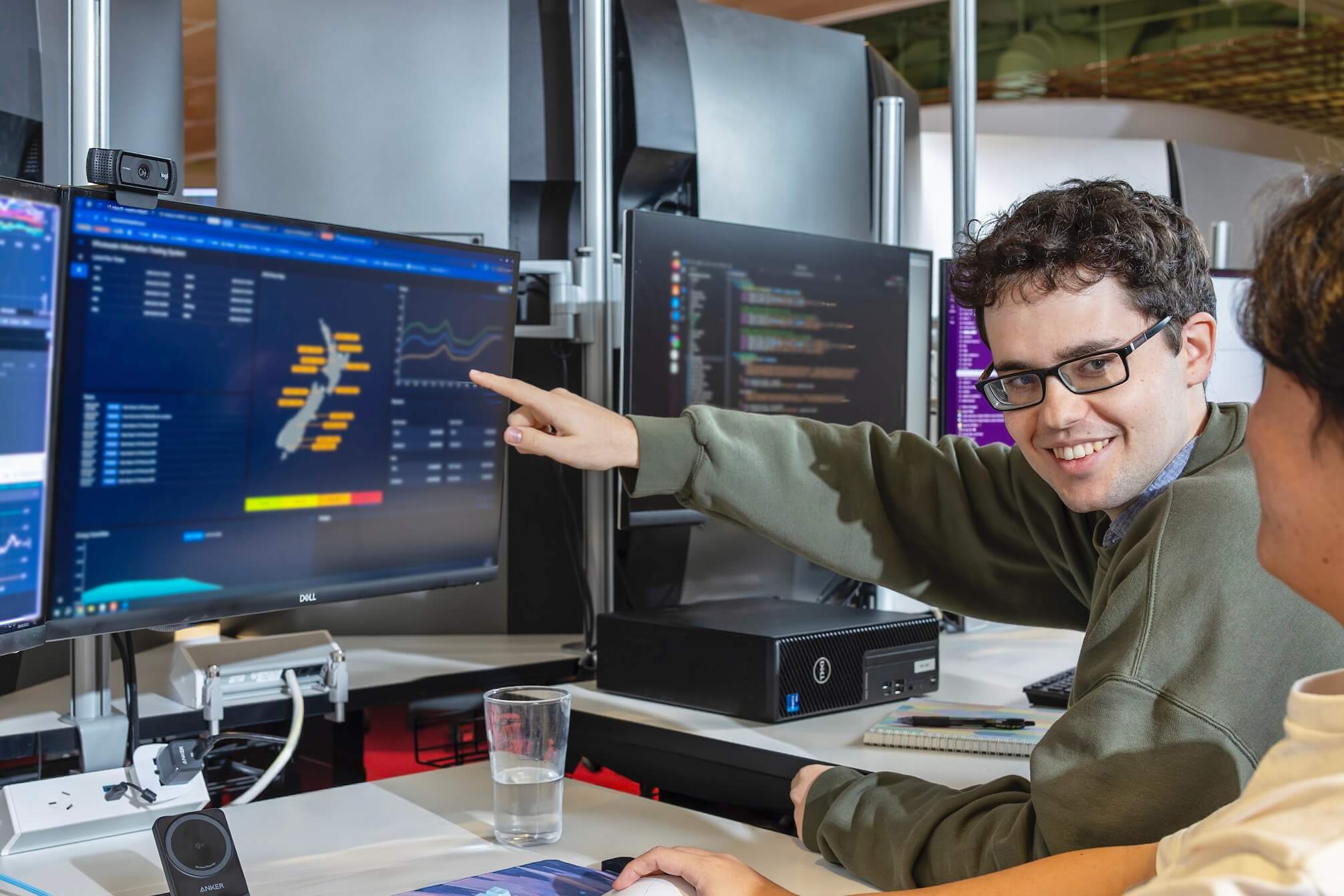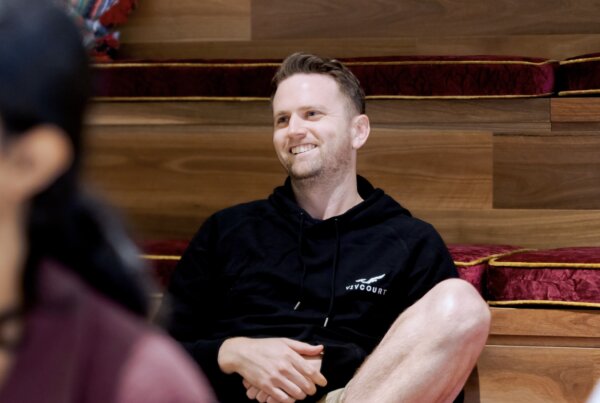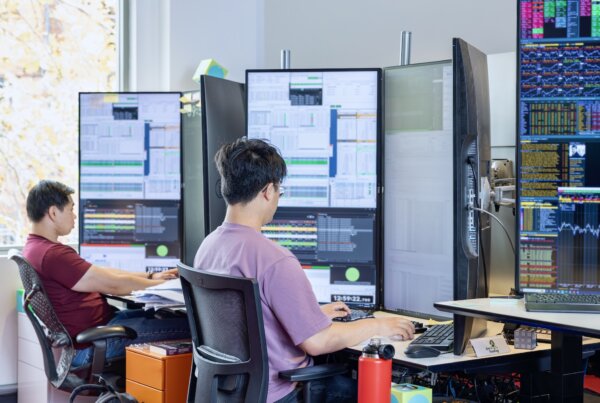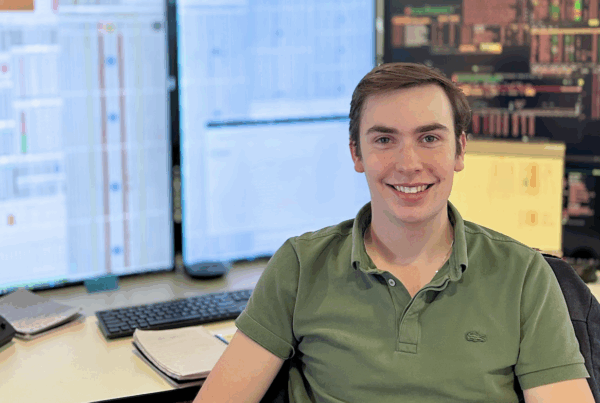
After studying Software Engineering at the University of Auckland and interning at several trading firms, Hugo joined VivCourt as a graduate software engineer in 2025, drawn to the blend of low-level programming, fast-paced problem solving, and market dynamics. In this Q&A, he shares what makes trading tech so exciting, the tools he uses, and advice for those looking to break into the industry.
You interned at a few trading firms before VivCourt – how did that shape your interest in the industry?
I was first drawn to trading because it combines my interests in low-level, high-performance programming, financial markets, and fast-paced environments. Working in the industry exceeded my expectations by combining my interests with teams of consistently high-calibre engineers and an abundance of interesting problems. VivCourt covers all the bases, and on top of that, does good by their employees and the wider community, which I think puts it a step above the rest.
You started as a grad on the cash equities desk: how would you explain cash equities trading, and what makes it interesting to work on as an engineer?
Cash equities trading – the kind most people are familiar with – involves trading any equity that can be liquidated to cash, such as stocks and commodities.
Because cash equities come with challenges like pricing complexity, we manage more diverse strategies than other desks, across multiple markets, instruments, and trading styles, from full auto-trading to completely manual. For engineers, that translates into a constant stream of new and interesting problems to solve. Another big point is that due to the more intuitive nature of cash equities markets and trading, it allows us engineers to have a bigger input on the trading side.
What’s a typical day like for you on the cash equities desk?
Each day starts with checking that all systems have started up without issue before the market opens; this support is ongoing and we must always be ready to respond to any incidents that occur. However, the majority of our day is spent on engineering tasks, like building new pricing strategies or improving the performance of an autotrader. Our work is closely tied to the trading team’s needs, so priorities shift based on what will have the biggest impact on performance.
What languages and tools do you use most in your work?
Our main trading infrastructure, including components like autotraders, is primarily built in C++. We use Go for middle and back office systems, and C# for our user interfaces. To stay competitive and meet the unique needs of our desk, we’ve also developed a range of custom tools designed specifically for our strategies.
Were there any uni subjects or projects that helped you on the job or in getting the role?
Trading’s emphasis on high-performance, low-level engineering is somewhat unique compared to the broader software industry. Courses such as operating systems or high-performance computing can help teach you the fundamentals and facilitate ideas, but I think real experience and personal projects are far more important. For example, I expanded a university file system project into something more complex and built embedded systems as hobby projects.
I also believe we’re at our best as engineers when we truly understand the trading side of the business. For example, my honours research was on using AI for sentiment analysis of financial text and its application to trading.


